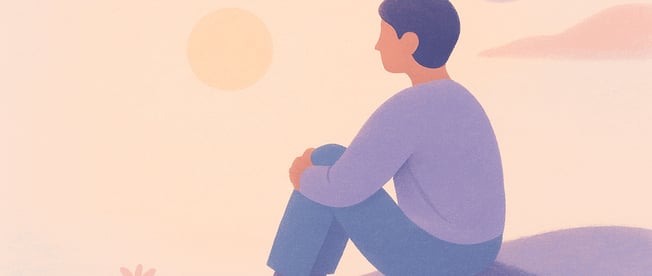Perks and Tender Spots of Being an Enneagram Type Nine (From My Experience)
Erick Sebastian Quimbayo
5/8/20242 min read


Being a Type Nine on the Enneagram can be a hard pill to swallow. Believe me. I know all about this.
When I took the test for the first time back in 2019, I immediately related to the description, and at the same time felt like a sense of rejection. It fit too well. It was almost painful to see, laid out in words, a precise reflection of the quiet discomfort I had carried most of my life.
Looking at it now, after years of working with this map, I can recognize when I’m aligned with my true self, or when I’m slipping into old patterns. And from that place, I’ve gained perspective — enough to name both the perks and the tender spots that come with being a Nine.
Perks.
We see beauty in the simple things.
We notice quiet moments. A breeze, a smile, a pause. We’re often tuned into subtle joys that others might miss.We’re great listeners (and honestly, that’s sexy).
People feel safe around us. We’re not in a rush to fix or interrupt — just to be there. That kind of presence is rare and appealing.We know how to be comfortable.
We nines definitely know how to take it easy, relax, and let life unfold itself.
Tender Spots.
Massive procrastination.
We wait. We postpone. We feel the call to act, but answering it can take a lot of energy.Conflict avoidance… even when it matters.
We often avoid discomfort at the cost of truth. Speaking up feels risky — and that ends up in us neglecting our needs, out of fear of losing connection with others. Quick tip: when we say “No” to others, we are saying “yes” to ourselves.Minimizing problems.
We downplay issues — with ourselves, with others. It helps us cope, but also keeps us stuck. It reduces our self awareness, it makes us poor problem-solvers, and impacts our relationships, all leading to a declining self-esteem.
So, is being a Nine a beautiful thing? Absolutely. When I’m grounded and present, I love how I can harmonize spaces, help people feel welcome, and stay connected to peace.
But what I’m most grateful for is how the Enneagram gently — and sometimes not so gently — shows me when I’ve slipped into survival mode: when “being kind” turns into “erasing myself,” or when “resting a bit” turns into ignoring what actually matters to me.
The Enneagram invites me back into my body.
It reminds me to act, to take up space, and to honor my desires. And when I have those heavy days — when I avoid myself, get nothing done, and end the day feeling guilty — I can at least recognize what’s happening. I can meet myself there with compassion.
And then, I can try again the next day.
